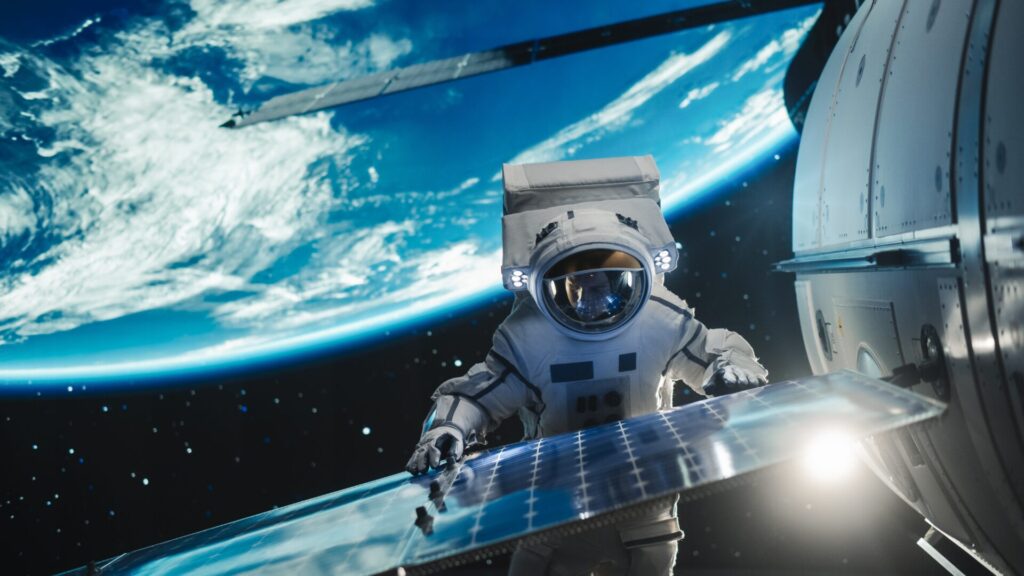IELTS Space and Exploration – investment in space, benefits for science and daily life
One of the fascinating topics that often appears in the IELTS Speaking and Writing test is IELTS Space and Exploration – investment in space, benefits for science and daily life. Candidates are sometimes surprised when questions move away from everyday life and into larger themes such as space travel, satellites, or the future of humanity beyond Earth. But the truth is that this topic is a perfect opportunity to demonstrate high-level vocabulary, critical thinking, and well-structured answers.
In this blog, we will explore the theme of IELTS Space and Exploration – investment in space, benefits for science and daily life, highlight useful vocabulary, and give you some strategies to raise your IELTS score.
Why space and exploration appears in IELTS
The IELTS test is designed to check your ability to communicate on both familiar and abstract issues. Space exploration combines both. On the one hand, it connects to daily life through satellites, GPS, and weather forecasting. On the other, it raises abstract issues such as whether governments should spend billions on rockets instead of healthcare. That is why examiners choose topics like IELTS Space and Exploration – investment in space, benefits for science and daily life: they allow you to show your ability to balance arguments and provide examples.
Vocabulary for IELTS Space and Exploration
When preparing for IELTS Space and Exploration – investment in space, benefits for science and daily life, a wide range of vocabulary is essential. Here are some useful word groups:
-
Technical terms: orbit, satellite, spacecraft, launch, astronaut, zero gravity, propulsion
-
Investment language: funding, budget allocation, taxpayers’ money, economic return, cost–benefit analysis
-
Science and innovation: breakthrough, technological advancement, spin-off technology, medical research, renewable energy
-
Daily life connections: GPS navigation, satellite television, climate monitoring, mobile communication
-
Argument language: proponents, critics, justify, outweigh, priority, ethical dilemma
By using this vocabulary in your speaking or writing, you will show examiners that you can handle abstract issues confidently.
Structuring your ideas
When you face a question such as “Should governments invest in space exploration when there are problems on Earth?”, you need a clear plan. Start with a topic sentence that introduces your argument, then support it with examples. For example:
“While some argue that space exploration is a waste of resources, investment in space has brought major benefits to daily life such as GPS and climate science.”
This approach directly addresses the theme of IELTS Space and Exploration – investment in space, benefits for science and daily life and keeps your answer focused.
Investment in space
One strong point to mention in both IELTS Writing Task 2 and Speaking Part 3 is the economic argument. Investment in space often produces new industries, jobs, and technology that return much more than the original budget. For example, lightweight materials first developed for spacecraft are now used in sports equipment and medical devices. Showing awareness of these links will strengthen your argument and demonstrate that you understand IELTS Space and Exploration – investment in space, benefits for science and daily life in a broad sense.
Benefits for science
From a scientific perspective, the importance of space exploration is enormous. Studying other planets helps us understand Earth’s climate. Satellites provide vital data for predicting natural disasters. Astronomical research leads to new theories about physics and energy. These are concrete examples that you can use when developing ideas in the IELTS exam. Again, you are tying your answer back to IELTS Space and Exploration – investment in space, benefits for science and daily life with clear evidence.
Benefits for daily life
Sometimes candidates forget the everyday impact of space technology. Yet our daily routines rely on it: checking the weather forecast, following online maps, or even making international phone calls. These examples make your speaking answers relatable. In Writing Task 2, they allow you to balance global issues with personal experience. Whenever possible, connect the global theme of IELTS Space and Exploration – investment in space, benefits for science and daily life with something the examiner recognises from daily life.
Practice and preparation
The best way to build confidence on this topic is to practise under exam conditions. Take a free practice test here: IELTS practice test. Try writing a Task 2 essay on the question: “Space exploration is a waste of public money. To what extent do you agree or disagree?” Then review your essay and see if you used the vocabulary above.
To go further, prepare with official resources from the British Council: British Council IELTS preparation. These materials mirror the real test and help you practise effectively.
Courses to raise your score
If you want guided support, we offer several options:
-
Exam Mastery Course – starting on 13th October, covering daily themes and strategies to prepare for every section of the test
-
One-to-One Coaching – get 20% off next week when you book 30 hours. Train individually with an IELTS expert: One-to-One IELTS Coaching
-
Study with Friends – prepare in small groups for motivation and support: Study IELTS with Friends
All these programmes are designed to help you succeed with challenging topics such as IELTS Space and Exploration – investment in space, benefits for science and daily life.
Final thoughts
Remember, examiners are not looking for specialist knowledge of science or technology. They want to see how well you can explain ideas, use vocabulary, and organise an argument. By practising vocabulary, preparing examples, and understanding both sides of the debate, you will feel ready when the topic of IELTS Space and Exploration – investment in space, benefits for science and daily life appears in your test.
Take the chance this holiday to prepare, practise, and raise your IELTS score with professional support.







